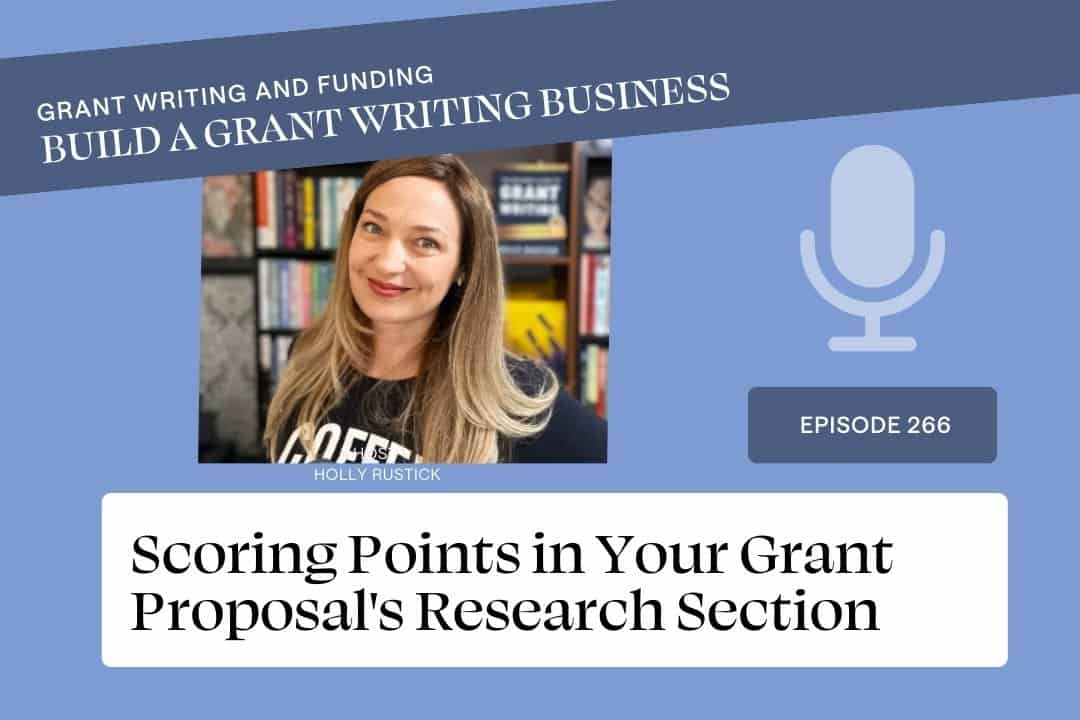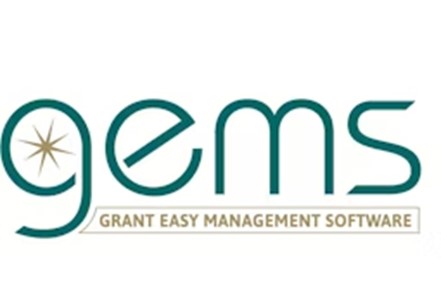Scoring Points in Your Grant Proposal’s Research Section with Holly Rustick

April 11, 2023
This episode, Holly explains how a grant proposal’s research section is marked, what you should include in the research section, and the type of data you need to provide.
The research section is a vital part of your grant proposal, it’s a chance to showcase the importance of the work you’re doing and the impact you can have with the right funding.
It can be tempting to write this section emotively, but your research section needs to be data focused, you can’t be scored on emotions but data can get you points.
This episode, Holly explains how a grant proposal’s research section is marked, how should write the research section in a grant proposal, and the type of language you should use.
Holly also talks about the ways to score points in the research section, the data you need to provide, and the most important aspects of a grant proposal’s referencing style.
What you’ll learn in this episode:
- How to write the research section in a grant proposal.
- Why a grant proposal’s research section is important.
- The rubric used to score grant proposals.
- How to score points in the research section of your grant.
- The data you need to provide in a grant proposal.
- The risks of using AI in your grant proposal.
- What to include in your specific problem statement.
- How to reference sources in a grant proposal.
- When you can use old research in a grant proposal.
Quotables:
- “Sometimes people think they’re writing a fundraising appeal instead of a grant but it’s a very different language you use. Being emotional in your grant and trying to pull at the heartstrings of a grant reviewer won’t get you points, using data will.”
- “You won’t get scored for being emotional, grant reviewers have to follow a rubric and emotion isn’t on there. What grant reviewers will mark you on is data, citations, sources, a problem statement, target demographic, and showcasing the need through data.”
- “You need to use data and research to support your main problem statement, this can be done through surveys, testimonials, case studies, focus groups, newspapers, and reports. You need to showcase this data and provide the citations of where you found that data from.”
Resources mentioned in this episode:
- FREE Grant Writing Class
- Grant Writing and Funding
- 172: Top Expert Tips to Write the Evaluation Section of a Grant Proposal
- 80: 8 Ways to Cite a Grant Proposal
- 7 Steps to Write a Grant Proposal
- Grant Easy Management Software
Rate, Review, & Follow on Apple Podcasts
“Every time I listen to Holly’s show, I learn something” <– If that sounds like you, please consider rating and reviewing my show! This helps me support more people — just like you — move toward writing higher quality grants without overwhelm, and to start and grow successful grant writing businesses! Click here, scroll to the bottom, tap to rate with five stars, and select “Write a Review.” Then be sure to let me know what you loved most about the episode!
Also, if you haven’t done so already, follow the Grant Writing & Funding podcast. I’m adding a bunch of bonus episodes to the feed and, if you’re not following, there’s a good chance you’ll miss out. Follow now!“

This podcast episode is lovingly sponsored by Grant Easy Management Software (GEMS).
Break Up with Your Spreadsheet – Get GEMS Grant Easy Management Software and NEVER MISS A DEADLINE AGAIN!
Book YOUR FREE demo now! Click here.
Holly Rustick
Meet the author Holly Rustick
Work with Me
Write Grants, Get Paid.
Freelance Grant Writer Academy
Grant Professional Mentorship
JOIN OUR NEWSLETTER
Holly Rustick is a world-renowned grant writing expert and Amazon bestselling author.
Holly has been coaching grant writers how to run successful 5-6 figure businesses since 2017.
With two decades of grant writing and nonprofit experience, Holly is a popular keynote speaker for events all over the world, podcast host of the Top-Ranked Grant Writing podcast, a former university instructor, and is past president of the Guam Women’s Chamber of Commerce. She is constantly booked out to run trainings to help grant writers grow capacity, increase funding, and advance mission.
Love this post? You'll love these resources.
GET ACCESS NOW
Free Grant Writing Class
Get the proven 7 steps to eliminate anxiety and get Holly’s 20 years of secrets to start writing winning grants.
You will get the grant writing system that has helped Holly secure more than $25 million in grant funding and students earn more than $100,000,000 in funding for nonprofits around the world!
GET ACCESS NOW
Free 5-Step Checklist
OUR SPICY BELIEF IS THAT ALL GRANT WRITERS SHOULD START A BUSINESS, EVEN IF IT’S PART-TIME.
Work from home and have a massive impact on your community. Set up a grant writing business so you can start getting paid to write grants.